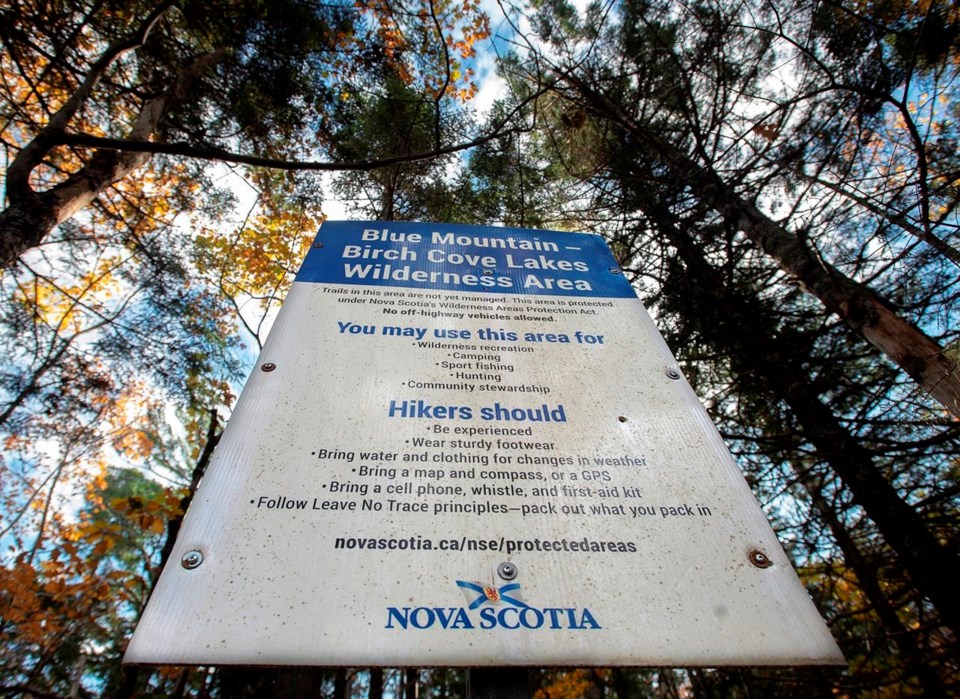HALIFAX — Parks Canada says an urban wilderness area on the edge of Halifax has met a key requirement in the process to become a national urban park.
The agency says a pre-feasibility report on the Blue Mountain-Birch Cove Lakes area has determined the candidate site can move on to the planning stage.
Parks Canada also announced it will provide $2.1 million to help the province work with the Nova Scotia Nature Trust and the Halifax Regional Municipality.
The planning stage will also look into how the park will be run, where the boundaries will be placed and what trails and infrastructure will be needed for public access.
As well, there will be ongoing collaboration with local Indigenous communities as the project includes lands and waters that are culturally significant to the Mi'kmaq in Nova Scotia.
The federal and Nova Scotia governments committed to establishing the province’s first national urban park last August.
Federal Environment Minister Steven Guilbeault said at the time Ottawa had already committed to investing in land acquisition and infrastructure by the end of 2023.
The existing Blue Mountain-Birch Cove Lakes Provincial Wilderness Area is close to Kearney Lake and the Bayers Lake Business Park in Halifax.
Local advocacy group Friends of the Blue Mountain-Birch Cove Lakes has been calling for a park designation since 2018.Â
"Every Canadian deserves access to green and protected areas close to home," Guilbeault said in a statement. "We want more Canadians to be able to connect with nature and to foster a deeper appreciation for the natural environment."
The potential national park includes 2,304 hectares of forests, barrens, wetlands and lakes. The area is also home to 23 species at risk.
Parks Canada has also started exploratory talks for other potential national urban parks in Montreal, Victoria, Edmonton, Saskatoon, Winnipeg and Windsor, Ont.
This report by The Canadian Press was first published May 23, 2023.
The Canadian Press




